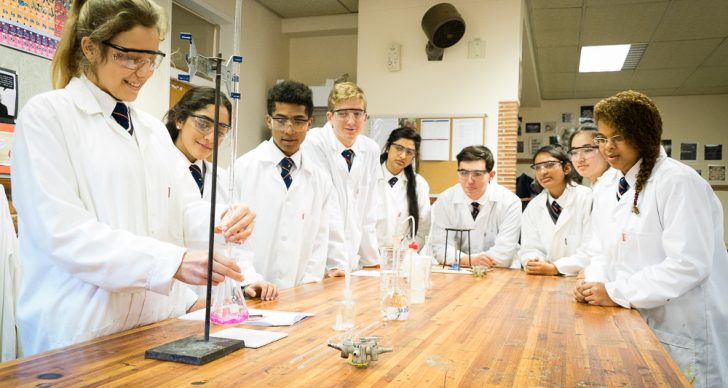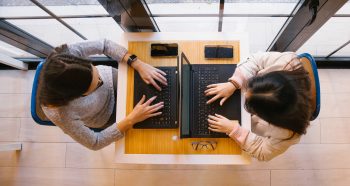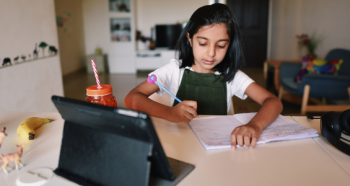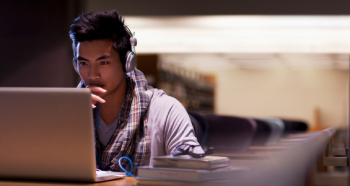Some of my most enduring memories from school were formed in the science lab – the first experiment I did was heating ice in a beaker, which wasn’t terribly exciting, but I do remember being excited, if a little terrified, about using a Bunsen burner. Naturally, more exciting and complex experiments followed; for me biology was always more complicated than chemistry or physics! Doing practical work gave me a lasting curiosity and many transferable skills. I’d like to think that every learner would have the same opportunity to discover science through practical work.
Challenges in the classroom
However, delivering practical science lessons in the classroom can be a challenge for schools. Access to lab equipment and suitable chemicals may be restricted, or in some cases prohibited. Often teachers have to rely on descriptions of experiments and pictures of the results in textbooks, or spend hours searching the internet for suitable video content to show in class. Many teachers know all too well the experience of saving a YouTube link for a lesson – only to go back later and find it’s been taken down!
We’ve had a lot of feedback from our teachers who’ve faced difficulties incorporating practical science in their lessons, and we were determined to provide a solution that helped lessen the burden of searching for and curating content.
Through exam results analysis and feedback from Cambridge teachers, we identified ten topics from each of the three science syllabuses that learners found challenging. For each of these topics, we developed a range of teaching and learning materials to help teachers enliven their teaching and engage their learners. This is how we came to create the learning platform for teachers we’re calling Resource Plus.
What are the different types of content on Resource Plus?
For each syllabus, Resource Plus includes:
- three experiment videos for each of the ten topic areas including an interactive video for teachers and a virtual practical for learners
- a Skills Pack for each of the experiment videos containing lesson plans, safety guidance and worksheets for learners
- a safety animation that discusses risks, hazards, safety precautions and good practice
- infographic posters which visually represent the syllabus content as showing the links between different topics
- interactive Example Candidate Responses which can be reviewed and marked on-screen against the mark scheme and examiner comments
- schemes of work for both the full syllabus and each individual topic area, including suggested teaching activities for each topic area
- a selection of past paper questions for each topic area that can be used in class or as homework.
Focus on the skills
Each experiment is accompanied by a Skills Pack that allows teachers to confidently deliver the experiments with their learners or to complete the experiments virtually. Each Skills Pack follows the same structure and consists of a briefing lesson, practical lesson or a virtual practical lesson, and a debriefing lesson. The briefing lessons help learners to develop the skill(s) that have been identified as the focus of the experiment. The practical lesson allows teachers to run the experiment with their learners. This includes a teacher’s notes section and a teacher method. The virtual practical lesson provides support for the teacher to run the experiment virtually using the interactive virtual practical video. The debriefing lesson provides support for teachers to draw together conclusions from the experiment and to support learners’ extended writing skills. Each lesson comes with a variety of worksheets.
Where to find Resource Plus?
A demonstration version of Resource Plus, along with example content can be accessed here on our website.
Resource Plus is delivered online using our existing Online Learning Area. Here, teachers who subscribe to Resource Plus will find a collection of additional teaching and learning resources developed specifically for them for biology, chemistry and physics. It was important to us that the content was written by teachers and subject experts.
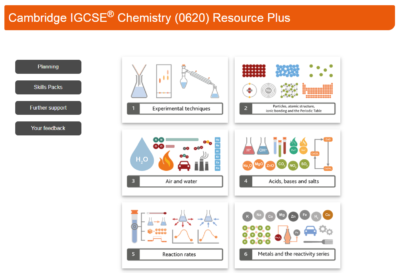
The content is built around the already established schemes of work. You can navigate around the platform using the infographic buttons.
What’s next?
Every year Resource Plus for the sciences will be updated with more experiment videos and Skills Packs. A mid-year update will provide even more content for teachers to use with their learners and currently we are working on some new and exciting ideas. We are always looking for feedback from teachers and users of Resource Plus – so if you have an idea, we’d really love to hear it!
We are also developing Resource Plus for Cambridge International AS & A Level sciences. Here, we are hoping to create resources for teachers and learners that encourage practical science, independent thinking and research, helping to prepare learners for the next stage.
And finally, it’s not just for science…
We’ll soon be rolling out Resource Plus for Mathematics and English Literature – broadening our support across the core subjects. These will be available in March 2018.


